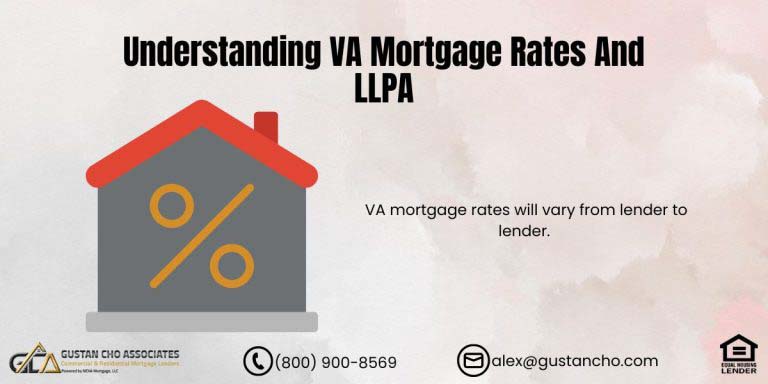In this article, we will discuss and cover lenders changing mortgage guidelines post COVID-19 ERA due to skyrocketing rates, market volatility, and an unstable housing market. We will be comparing mortgage lenders changing mortgage guidelines due to liquidity issues in the secondary mortgage bond market. The coronavirus pandemic had lenders changing mortgage guidelines due to uncertainty in the financial markets. However, things got stabilized and now we are facing more uncertainty with skyrocketing inflation and high rates where mortgage lenders changing mortgage guidelines is alarming borrowers. Investors of mortgage-backed securities (MBS) are nervous and have implemented additional lender overlays and pricing adjustments. Many investors have limited buying of mortgage-backed securities of borrowers with lower credit scores.
Is It More Difficult Getting Approved For a Mortgage Today?
It is more difficult to get approved for a mortgage today due to uncertainty in the marketplace. All loan programs across the boards is more difficult to get than several months ago. This includes traditional government, conforming, and non-QM loans. Most lenders have increased credit score requirements on government and conventional loans. Most lenders have increased their minimum credit score requirements to 660 to 680 FICO plus discount points on FHA and VA loans. JP Mortgage Chase has stopped taking applications on all government loans (FHA, VA, USDA). Chase Mortgage only takes applications on conventional loans for borrowers with a minimum of 700 credit scores and a 20% down payment.
Lenders Changing Mortgage Guidelines Due To COVID Outbreak
Many lenders have lowered debt-to-income ratio caps as well. Lenders have tightened credit and lending requirements on all loan programs due to the uncertain secondary mortgage bond markets. The great news is that Gustan Cho Associates have not implemented any changes due to the coronavirus pandemic. We still take applications for government loans with under 620 credit scores. We still do manual underwriting and FHA 203k loans. In this breaking news article, we will discuss and cover Lenders Changing Mortgage Guidelines Due To COVID-19 Pandemic.
Are There Lenders Who Did Not Change Mortgage Guidelines During COVID-19 Outbreak?
The team at Gustan Cho Associates is excited to share some recent updates for FHA mortgage loans. For the first time since the pandemic began, The Federal Housing Authority has loosened its employment and appraisal requirements. Things almost got back to normal after the coronavirus outbreak. However, soaring inflation and skyrocketing rates along with the resurgence of a new potential pandemic have lenders changing mortgage guidelines again. Many non-QM lenders are eliminating non-QM loan programs or increasing lending requirements. Some non-QM lenders have gone out of business due to uncertainty in the mortgage markets. In this blog, we will explain what an FHA home loan means, detail the recent changes by HUD, and give instructions to apply for an FHA loan with Gustan Cho Associates.
Why Are Lenders Changing Mortgage Guidelines on FHA Loans
What is an FHA loan? This is a very common question fielded by Gustan Cho Associates. Your everyday mortgage programs are overseen by a different agency. Conventional mortgage loans are overseen by Fannie Mae and Freddie Mac. FHA, VA, and USDA mortgage loans are overseen by the U.S. Department of Housing and Urban Development. Now that we have this simple breakdown, what is an FHA loan? An FHA mortgage loan is a mortgage loan that is insured by the federal government. The Federal Housing Administration sets lending standards for this particular mortgage program.
Why Did Lenders Changing Mortgage Guidelines On Non-QM Loans During COVID??
Prior to the COVID-19 pandemic, Non-QM loans were the hottest loan program in the U.S. Many homebuyers who could not qualify for government and conventional loans due to not meeting its guidelines can often qualify with non-QM loans. There is no waiting period after bankruptcy, foreclosure, deed in lieu of foreclosure, or short sale with non-QM mortgages. Bank statement loans for self-employed borrowers with no income tax return required were a very common loan program for business owners and/or independent contractor wage earners. Asset depletion mortgages were very popular for wealthy individuals with no steady income source. Non-QM lenders have nearly halted non-QM loans
Lenders Changing Mortgage Guidelines on Non-QM Loans
After the COVID-19 pandemic hit the U.S., all non-QM loan programs were suspended until further notice. Many non-QM lenders went out of business. The secondary mortgage bond market and institutional investors were not interested in buying mortgage-backed securities of non-QM mortgages. However, Gustan Cho Associates still take non-QM mortgage loan applications. Our guidelines on Non-QM loans have changed temporarily until the secondary market stabilizes. We require a higher down payment and credit scores on non-QM loans than prior to the pandemic. The non-QM mortgage markets should stabilize in the weeks and months to come. The non-QM and alternative finance mortgage markets are very unstable. Many wholesale lenders of non-QM loans have discontinued or increased lending requirements on many non-QM loans.
Lenders Changing Mortgage Guidelines For Self-Employed Borrowers
Possibly the most significant update applies to self-employed borrowers. It is no secret that many self-employed borrowers took a substantial financial hit during the shutdowns. That being said, if you have a two-year history of self-employed income prior to the pandemic, and a way to verify your current self-employed income is similar to those levels (within an 80% threshold), an FHA underwriter may utilize pre-pandemic income levels. Please keep in mind, that this must be formally documented via tax returns and profit and loss schedules. At the end of the day, your income will be analyzed by an FHA-certified underwriter. This is a giant change for FHA, and one that I feel is forward thinking.
Lenders Changing Mortgage Guidelines Due To COVID-19 Creating Chaos In The Housing Markets
All agency guidelines from HUD, VA, USDA, Fannie Mae, and Freddie Mac remain the same with no changes. However, many borrowers have noticed significant changes with lenders changing mortgage guidelines due to the COVID-19 pandemic. Many lenders suspended manual underwriting on FHA and VA loans. Most lenders have halted all FHA 203k and Reverse Mortgages until further notice. The minimum credit score required for a 3.5% down payment on an FHA loan is 580. However, most lenders have increased minimum credit score requirements to 660 to 680 FICO. This holds true even though the minimum HUD credit score requirement is 580 FICO. Other lenders have drastically lowered their debt-to-income ratio caps from 40% to 45%. Yet other lenders no longer accept gift funds for the down payment and/or closing costs.
VA Loan Guideline Changes and Update For 2022
Many borrowers who qualified for a mortgage prior to the pandemic no longer qualify with their original lenders who have imposed lender overlays. The VA has no credit score requirements on VA loans. However, many lenders now have lender overlays on VA loans such as minimum credit score requirements of 640 to 680 FICO and debt to income ratio caps. Gustan Cho Associates can do VA loans with credit scores down to 500 FICO.
Mortgage Loans With 500 Credit Scores
Borrowers can qualify for FHA and VA loans with credit scores down to 500 credit scores. There are no maximum debt-to-income ratio caps on VA loans. The great news is that Gustan Cho Associates will take FHA loan applications with under 620 credit scores and down to 500 FICO. Gustan Cho Associates has no lender overlays on FHA, VA, USDA, and conventional loans. We still take manual underwriting mortgage applications as well as FHA 203k and Reverse Mortgage applications. The team at Gustan Cho Associates can do manual underwriting on VA loans with debt to income ratio over 60% as long as they have high residual income.
Mortgage Lenders For Bad Credit
While other lenders are struggling to try to get mortgages approved, Gustan Cho Associates is busy doing loans other lenders cannot. The mortgage market is expected to stabilize in the coming weeks and months. The reason lenders have increased their lender overlays is due to the illiquidity in the secondary mortgage bond market. Investors in the secondary mortgage bond market have no appetite for borrowers with under 680 credit scores. This should change in the coming weeks and months. We will keep our viewers updated on new developments in this story.
What Is The Lowest Credit Scores To Get an FHA Loan?
FHA home loans are a great program for borrowers who have limited access to down payment funds as well as lower credit scores. An FHA loan will only require a 580 credit score to put a low 3.5% down payment. If your credit score is below 580, you can still qualify for an FHA loan with a 10% down payment. The minimum qualifying credit score for an FHA loan is 500. FHA loans have been available since 1934 and are available for 1 to 4-unit properties. An FHA mortgage loan is backed by the federal government and lenders are protected if a borrower defaults. This is part of the reason an FHA loan will have upfront and monthly mortgage insurance.
FHA Loan Requirements Post COVID-19
While there are specific underwriting criteria that must be met to qualify, generally speaking, it is easier to qualify for an FHA loan compared to a conventional mortgage loan. Gustan Cho Associates are experts in all areas of FHA mortgage lending including manual underwriting and qualifying with Chapter 13 bankruptcies. So for any questions surrounding FHA mortgage loans, we encourage you to reach out to our team today. The U.S. Department of Housing and Urban Development oversees all FHA mortgage lending. The Federal Housing Authority or FHA is under the umbrella of The U.S. Department of Housing and Urban Development. Since these guidelines are overseen by the federal government, these changes are going to affect nationwide. Some recent changes to FHA mortgage lending surround appraisals and income that may have been affected by the COVID-19 coronavirus outbreak.
How Long Is an FHA Appraisal Good For in 2022?
First, let’s discuss the update on FHA appraisals. Or as long as we can remember, an FHA appraisal was always good for 120 days. Meaning the loan must close within 120 days from the date of the original inspection. The recent update has extended the validity period of the appraisal for an additional 60 days. So, now FHA appraisals are good for a whole 180 days. The reason for extending the initial appraisal validity period from 120 days to 180 days is to minimize financial burdens on potential borrowers utilizing FHA mortgage loans.
How Fast Do FHA Loans Close?
FHA has recognized the delays in processing and underwriting turn times due to the increased demand in the housing market. I think it goes one step further and they also recognize the large number of layoffs across the mortgage industry which will result in additional processing times. If you are in the process of refinancing with an FHA loan and need to fix something on your credit, this additional time your appraisal is valid for can help you significantly. Due to the volume of loans in the mortgage industry, processing times have taken significantly longer than in years past. This is a nice way the Federal Housing Authority is helping potential buyers not incur additional costs of recertifying an appraisal.
How Hard Is It To Get an FHA Loan?
The U.S. Department of Housing and Urban Development has a mission statement aimed to create strong, sustainable, inclusive communities and affordable homes for all. The pandemic has greatly disrupted the lives of many Americans across the nation. The recent changes announced surrounding income affected by the pandemic will increase the number of Americans who may qualify for FHA financing.
Is Buying a House During High Inflation and High Rates a Good Idea?
With this important announcement, it seems like HUD has realized the pandemic affected millions of workers across the country. Particularly workers of color and those at the lower end of the wage scale. Cutting these families off from home ownership opportunities goes against the mission statement of The U.S. Department of Housing and Urban Development. That being said, HUD has announced recent updates for those who lost employment during the pandemic or those who worked less during the height of the pandemic.
Income Requirements To Qualify For a Mortgage
Because this information is hard to digest, we are going to keep this short and sweet. For specific income-related questions, please reach out to our team to discuss your qualifications. The short version of the update from HUD surrounding FHA mortgage loans and income lost during the pandemic is; if we can verify your income prior to the pandemic, lower income caused by the pandemic, and verify your income has returned to pre-pandemic levels, we should be able to qualify you based on your current rate of pay.
Mortgage Guidelines After Unemployment
Once again, this is incredibly confusing and very specific to income lost due to the shutdowns during the pandemic. It is no secret that many Americans were simply laid off at the start of the pandemic. If you were one of the lucky individuals who was not laid off due to the pandemic, there is a good chance you worked fewer hours. In that is the case, and we can strongly document the amount you worked prior to the pandemic, the loss of hours during the pandemic, and then verify you are now working the same hours prior to the pandemic, we should be able to utilize your current rate of pay based on the updated FHA guidelines.
Mortgage Process With a Lender With NO Overlays
Applying for a loan with Gustan Cho Associates is a simple process. We have worked very hard to make the process as easy as possible for our clients. The first step to applying for a mortgage is to reach out to our team directly. You can reach out to Mike Gracz on (800) 900-8569 or at mike@gustancho.com. After you connect with our team, we will go over your basic mortgage qualifications with a few simple questions. During this initial conversation, we will have a good understanding if we qualify for an FHA loan or not. It is important, to be honest with your loan officer about all your financials.
How To Start The Mortgage Process in 2022
Assuming the first consultation goes well, you will be sent an application link by a licensed loan officer in your state. After filling out the online application, you will send your income and asset documentation to your loan officer (via email or secure portal). Once the loan officer has your completed application, they will be able to pull your full tri-merged credit report. Your licensed loan officer will go over the credit report with you in detail. If there are any items we need to address, you will know at this time. Assuming everything checks out on your credit report, your loan officer will then analyze your income and asset documentation. Based on these figures, you will be issued a pre-approval letter in the state you are applying. This will allow you to go shopping for a home and get under contract.
Is It Common For Lenders Changing Mortgage Guidelines?
Gustan Cho Associates are experts with mortgage guidelines and strive to stay up to date on all of the evolving changes. We offer a no overlay lending platform which helps us qualify more individuals than most banks in lending institutions. That being said, we adapt quickly to the changing guidelines. This is a major announcement from FHA, and we are excited to share it with you. This pandemic has been a rough time for many families across the nation. This change in qualifying income is something the Biden Harris administration has put in place to expand homeownership during these tough times. If you feel this recent change will help qualify you for a mortgage loan, please reach out to Gustan Cho Associates today.
This blog on Lenders Changing Mortgage Guidelines was updated on August 1st, 2022









